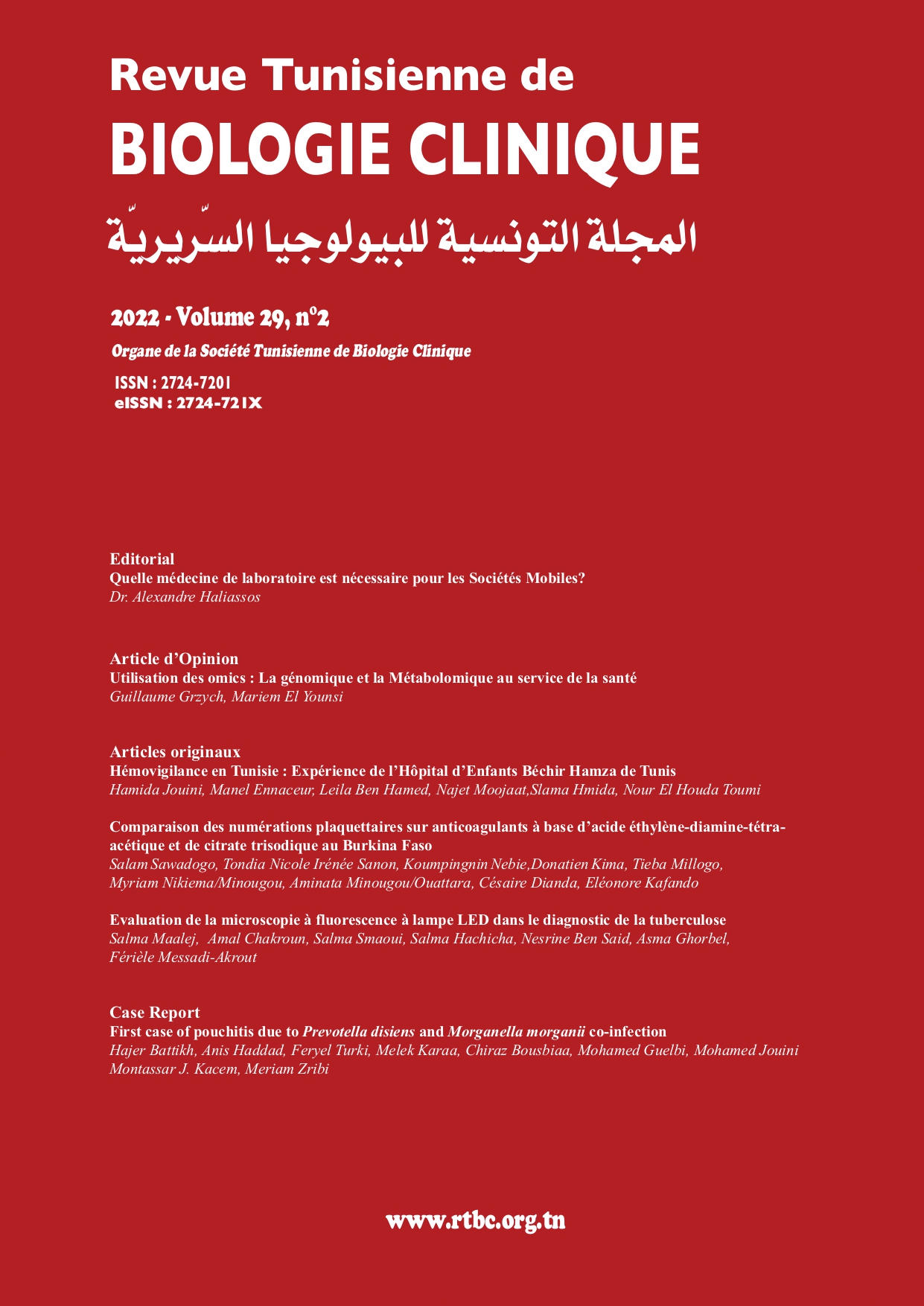Abstract
Blood transfusion is a therapy full of risk. To insure patient’s security and transfusion’s efficiency, all the transfusion chain must be respected. Haemovigilance is defined as the surveillance procedure organized from the blood donation until the follow-up of the recipients. Objective : Analyze the data available on the incident forms in order to identify the deficiencies in the Tunisian haemovigilance system and propose the necessary improvements. Materials and methods : Our study concerned 87 adverse transfusion events declared to the laboratory of hematology of Children’s Hospital of Tunis during 3 years (2018- 2020). It is based on analyzing the reports of adverse reactions and comparing with other haemovigilance systems in the world. Results : The scope of application is limited to the recipient adverse blood events. The incidence is estimated to 10/1000 labile blood products. The most frequent adverse reaction is allergy. Some items on the incident forms are not filled and some exams are not realized showing the lack of haemovigilance education. Conclusion : The revision of legislation, the restructuring of the sector as well as his computerization and the training of the actors of blood transfusion are very important.

This work is licensed under a Creative Commons Attribution 4.0 International License.
Copyright (c) 2022 Revue Tunisienne de BIOLOGIE CLINIQUE

